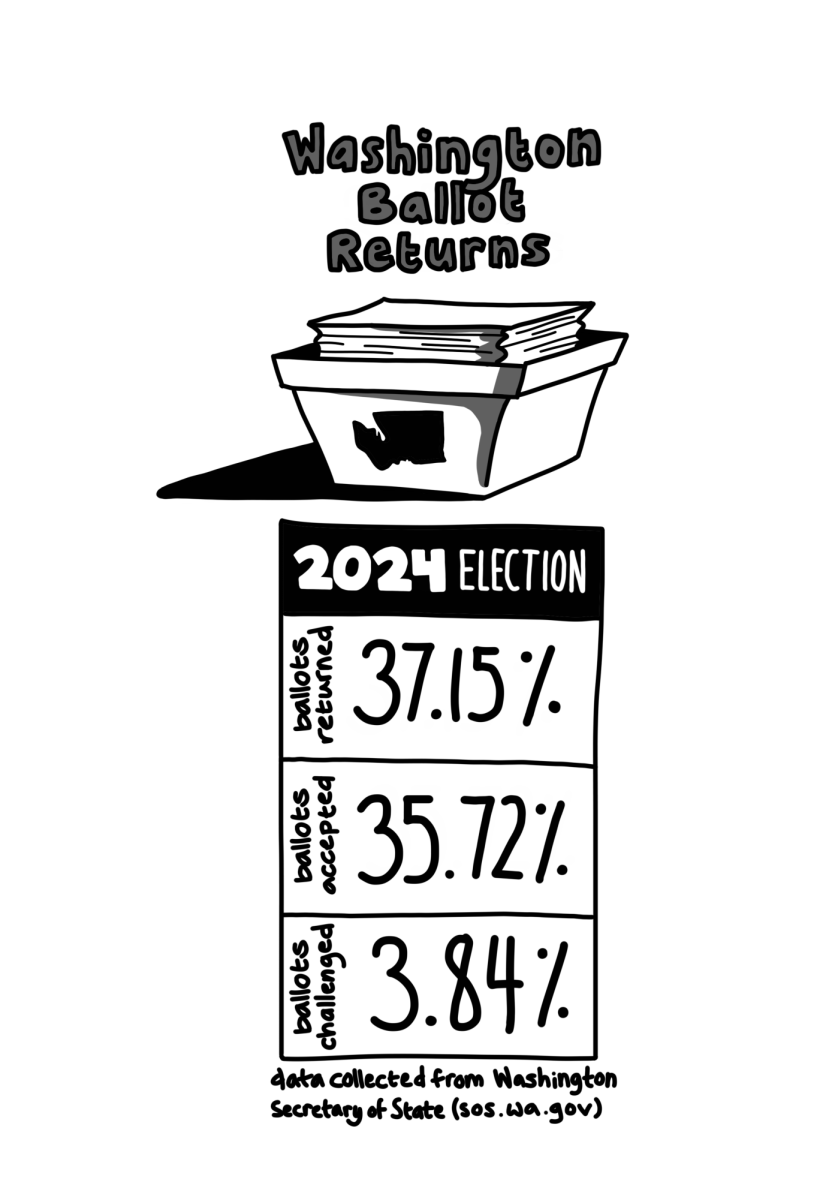For more than three years, Whitman has dealt with sexual misconduct unknowingly guided by an unlawful policy. While campus practices consistently operate outside the legal system, it was recently revealed that Whitman’s previous sexual misconduct policy violated federal regulations.
Whitman is now taking strides to rewrite and fix the sexual misconduct policy.
But the new changes aim to do much more than bring the code into compliance with the law.
According to Associate Dean of Students, Barbara Maxwell, Whitman strives to create a “model policy” aimed at serving students’ wants and needs. Since few sexual misconduct policies meld legal compliance with a student focus, Whitman’s policy would be leagues ahead of most others in the nation.
With the previous policy, Whitman’s largest liability rested in its failure to comply with Title IX’s standards of “prompt and equitable” treatment of students. These regulations compel college campuses to immediately address sexual assault in the most impartial and secure manner possible. By failing to meet these standards, Whitman inadvertently practiced a policy of “deliberate indifference” in dealing with those involved in sexual assault cases.
The overarching goal of the new policy aspires to produce a safe environment to protect the rights of both the complainant and accused.
“We aim to create a policy to remove the barriers to a potential victim so they want to report an incident,” said Saunie Schuster, the lawyer helping develop the policy.
Removing those barriers, Schuster explained, would mean that the college would provide a safe living environment, academic accommodations, assistance in filing complaints, and stringent confidentiality for all parties involved in a case.
The old policy placed a considerable weight on the complainant, forcing the student to gather evidence to prove that sexual assault occurred. With the new policy, the burden of proof lies with the college who must now investigate all reports of assault. This allows the respondent and complainant to serve as witnesses instead of advocates.
The new policy also requires those on the panel of a case to enter the hearing with no presumptions, marking a significant shift from the previous policy of innocent until proven guilty. This allows equal footing for both parties at the start of the hearing. The panel would determine solely from the evidence gathered by the college whether or not policy was violated.
This change not only complies with the legal standard, but is a step forward in reshaping Whitman’s commitment to the conduct of consent.
“It compels the perpetrator to determine what occurred to make him think ‘yes’ instead of asking the victim what they did to say ‘no,'” said Schuster.
One of the more noteworthy changes in the sexual misconduct policy is the degree of evidence required to find the accused guilty. Under the old policy, the complainant had to prove that sexual assault was “highly probable.” The new policy requires preponderance. This means the panel must be 51 percent sure that sexual assault has occurred to determine a violation of policy, according to Dean of Students Chuck Cleveland, who is diligently working in drafting the new policy.
This lower standard of evidence under the future policy would make it easier for the accused to be found guilty during a hearing.
Although Whitman uses preponderance in other misconduct cases, Cleveland still suspects that this lower standard of evidence for sexual misconduct may be met with opposition within the community.
The policy change was born from Whitman’s sudden realization of its legal issues. The school immediately fashioned an interim policy to fix the crucial legal problems that plagued the old policy. Though legally viable, the bare-bones interim policy is being temporarily utilized while Whitman carefully compiles the new one.
“Writing the new policy has been a very thoughtful, thorough process,” said Cleveland.
In an attempt to craft the best possible policy, Whitman has enlisted the help of Saunie Schuster. An education lawyer from Ohio who specializes in sexual misconduct practices in the university system, Schuster believes that once any policy becomes legally sound it must move to empower students.
Schuster emphasizes that Whitman’s policy should be “student-centered, student-friendly and easily accessible.”
The college has enthusiastically undertaken to incorporate this concept.
“What we’re doing in this final process is making it as user-friendly as possible…we’re taking it a step further…we want a legally compliant policy that is very user-friendly,” said Cleveland.
Whitman and Schuster’s student oriented policy appeals to junior Will Canine.
“We have a lot to gain from Saunie’s experience, understanding and emphasis on student accessibility,” he said.
Cluttered and dense, the old policy hindered a clear understanding of students’ rights and what they entail. The work group drafting the new policy intends to state students’ rights in the most clear and understandable manner. The ideal, according to Schuster, is to have a policy that a student can turn to in a time of duress and quickly and easily get the facts they need.
Through discussions with students across the nation, Schuster has gathered information on the most effective methods of forming and presenting sexual misconduct policies. The school plans on using this data, but will focus on discussions groups with Whitman students to best tailor the policy to this campus.
The administrators drafting the policy are also working closely with the ASWC Student Affairs Committee.
Barbara Maxwell’s position as “victims’ advocate” is an essential element of the old policy that remains. Along with the Counseling and Health Centers, Maxwell acts as the only confidential authority on campus. Maxwell calls herself a “funnel” between the student and the administration, assisting in understanding and implementing policy and creating a secure environment.
Maxwell’s enthusiasm for the new policy is evident. She asserts that it is a trail-blazing, cutting edge policy in its commitment to student involvement as well as legal standards.








